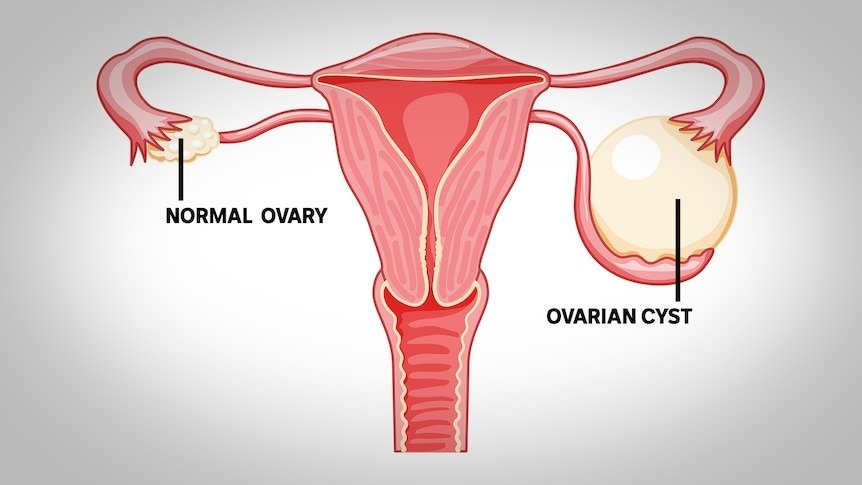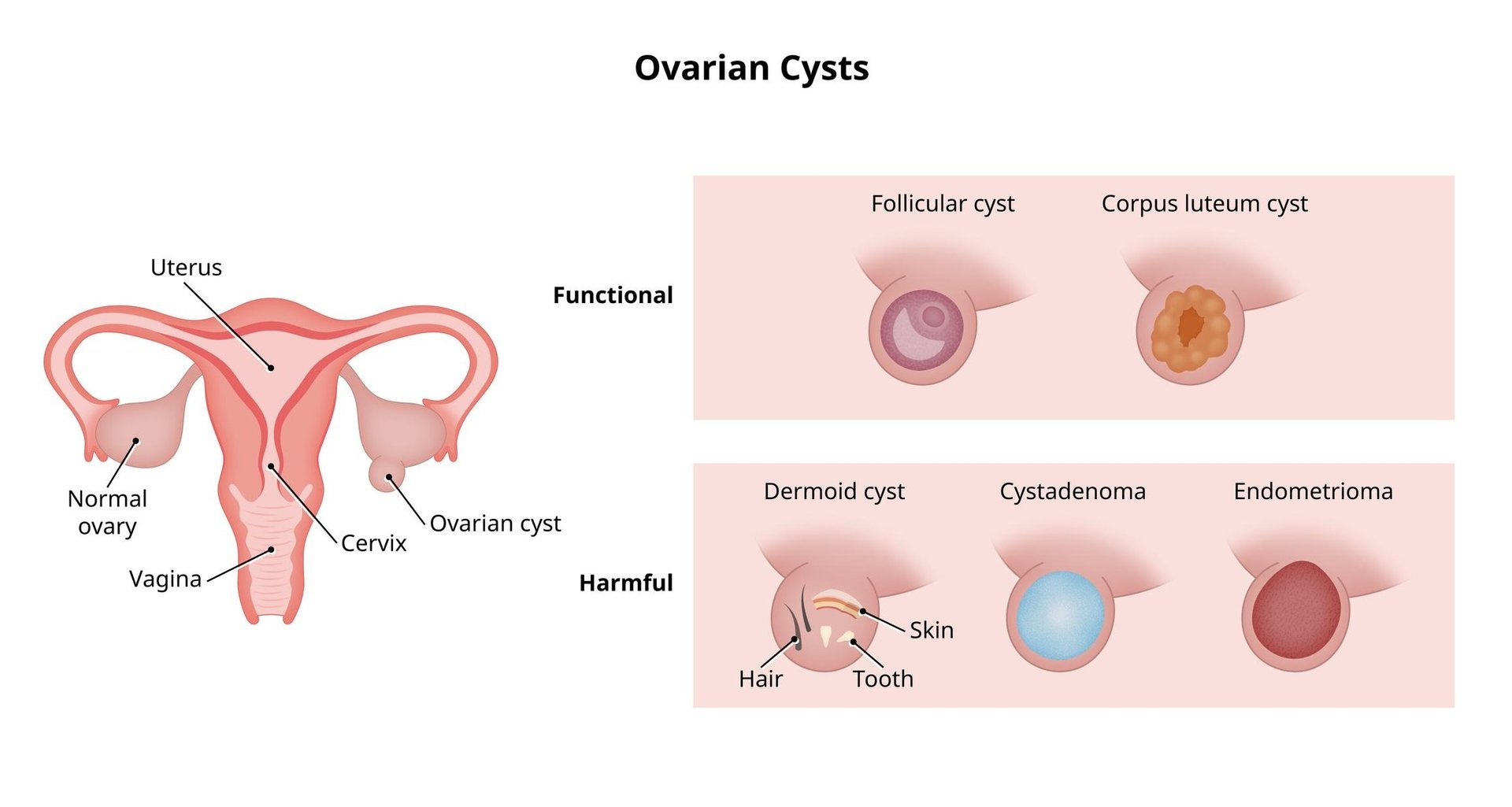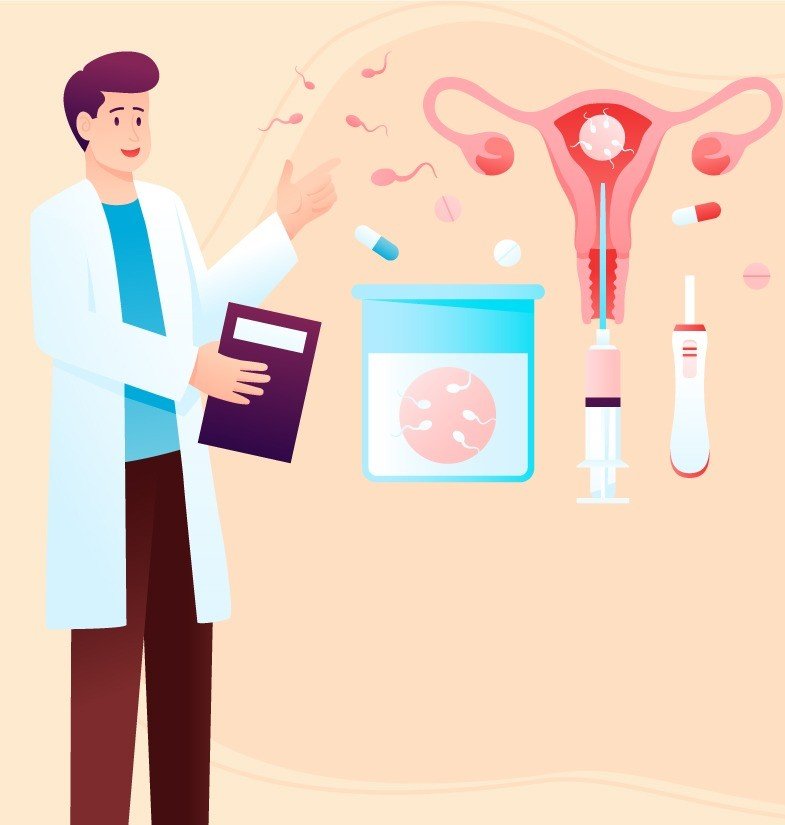Overview

Pregnancy brings about significant physical and hormonal changes in women. While most of these changes are normal, the development of ovarian cysts after pregnancy can be an unexpected issue for some.
In most cases, these cysts resolve on their own without treatment, but around 5-10% of women may need medical intervention, such as medication or surgery. Regular monitoring and early detection can help manage the condition effectively, ensuring a healthy recovery after pregnancy.
What Are Ovarian Cysts?

Ovarian cysts are fluid-filled sacs that form on the ovaries. They are quite common and usually harmless. There are different types of ovarian cysts, but the most common ones include:
- Functional Cysts: These form during the menstrual cycle and are usually harmless. They typically disappear on their own within a few months.
- Corpus Luteum Cysts: These develop after the egg is released from the follicle during ovulation. The follicle then becomes a structure called the corpus luteum, which helps produce hormones in early pregnancy. If the corpus luteum fills with fluid, it can become a cyst.
- Dermoid Cysts: These are less common and contain tissue such as hair, skin, or teeth because they form from cells that can develop into any part of the body.
- Endometriomas: These cysts form as a result of endometriosis, where tissue similar to the lining of the uterus grows outside the uterus, sometimes on the ovaries.
Causes of Ovarian Cysts After Pregnancy
Several factors can contribute to the development of ovarian cysts after pregnancy. Some of these include:
- Hormonal Changes: Pregnancy causes significant hormonal shifts in the body, which can sometimes lead to the formation of cysts.
- Corpus Luteum Cysts: These cysts may persist even after the pregnancy. While they usually disappear on their own, they can sometimes last longer than expected.
- Polycystic Ovary Syndrome (PCOS): Women with PCOS, a condition characterized by the presence of multiple cysts on the ovaries, may continue to develop cysts after pregnancy due to underlying hormonal imbalances.
- Endometriosis: Women with endometriosis may continue to experience ovarian cysts (endometriomas) even after pregnancy.
- Pelvic Infections: In some cases, infections in the pelvic area can cause cysts to form.
Symptoms of Ovarian Cysts After Pregnancy
Most ovarian cysts are small and do not cause symptoms. However, larger cysts or cysts that rupture can cause discomfort and a variety of symptoms, including:
Diagnosis of Ovarian Cysts
To diagnose ovarian cysts, your gynecologist may recommend the following:
- Pelvic Exam: A physical examination to feel for abnormalities in the pelvic area.
- Ultrasound: An imaging test that uses sound waves to create pictures of the ovaries, allowing doctors to see the size and type of cysts.
- Blood Tests: Blood tests may be used to check hormone levels or to rule out other conditions.
- CT Scan or MRI: In some cases, additional imaging tests like a CT scan or MRI may be needed to provide more detailed information.
Complications of Ovarian Cysts After Pregnancy
In most cases, ovarian cysts after pregnancy are harmless and resolve on their own. However, in rare cases, complications can occur, such as:
- Ovarian Torsion: This happens when a cyst causes the ovary to twist, cutting off its blood supply. It can cause severe pain and requires emergency surgery.
- Ruptured Cyst: A cyst may rupture, causing sudden, sharp pain. If the rupture leads to internal bleeding, it may require medical intervention.
- Infection: In rare cases, an infected ovarian cyst can lead to serious complications.
Treatment for Ovarian Cysts After Pregnancy

Most ovarian cysts, especially functional and corpus luteum cysts, resolve on their own without the need for treatment. However, if the cysts cause symptoms or complications, your doctor may recommend one or more of the following treatment options:
- Watchful Waiting: In many cases, the doctor may recommend monitoring the cysts with follow-up ultrasounds to see if they shrink over time.
- Medications: Hormonal contraceptives such as birth control pills may be prescribed to help regulate your menstrual cycle and prevent the formation of new cysts. However, these are typically used after pregnancy and breastfeeding.
- Surgery: If a cyst is large, causing severe symptoms, or is suspected of being cancerous, surgical removal may be necessary. The two types of surgery commonly used for ovarian cysts are:
- Laparoscopy: A minimally invasive procedure where small incisions are made, and the cyst is removed using a camera and special instruments.
- Laparotomy: A more extensive surgery where a larger incision is made to remove the cyst, especially if it is suspected to be cancerous.
- Pain Management: Over-the-counter pain relievers like ibuprofen or acetaminophen may help manage mild discomfort.
- Treating Underlying Conditions: If the cysts are caused by conditions such as endometriosis or PCOS, treating these underlying issues may help reduce the formation of cysts.






